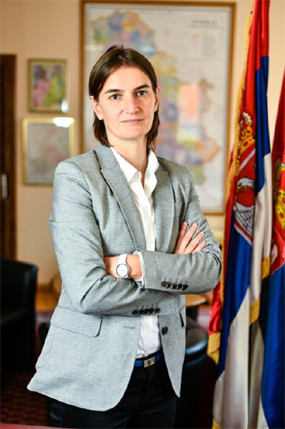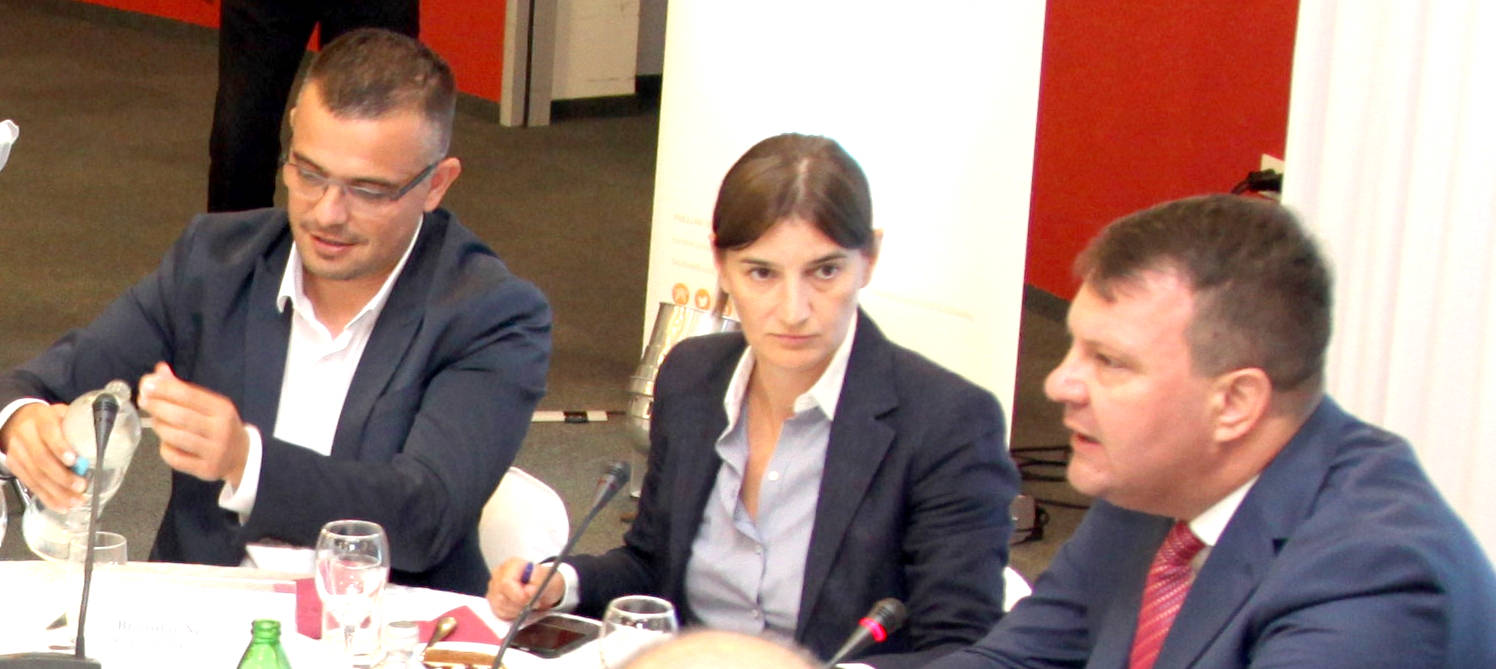Two months ago, newly elected Serbian President Aleksandar Vucic appointed Ana Brnabic to succeed him as Prime Minister. Many were surprised, and some had great expectations. Serbia got its first female PM in post-communist history, and even more interesting, its first openly gay PM.

In a small and conservative country, liberal circles of Serbian society saw this as a success. For them, it was an important step for LGBT rights, which are usually on a very poor level. Moreover, in a country facing a spike of domestic violence against women (some reports have stated that 35 die each year, and thousands are forced into shelters), having a first female PM was seen as someone who could finally show understanding for these problems, and ultimately, find a sound solution.
Within only two months in mandate, all those hopes seem to have melted. The first challenge for Brnabic came in July when two terrible murders occurred in the same week. First, a man murdered his ex-wife during a supervised meeting with their three children in a social center. Two days later, possibly inspired by the event and using the same “supervised visit“ privilege, another man killed a former spouse and their three-year-old son. Both crimes occurred in front of social workers, who previously dully ignored numerous reports of violent threats filed by both women. The police and state prosecutor had also turned a blind eye.
The murders caused strong debate about the responsibility of governmental institutions, but PM Brnabic remained silent, despite considerable power wielded by her office. To this day, Brnabic hasn’t said a single word, which caused significant public outcry and criticism from NGOs that deal with violence against women.
The second disappointment came shortly after. Also in July, the workers of Fiat Serbia went on strike, demanding higher wages and paid overtime. The Italian car manufacturer came to Serbia in 2008, as a part of a private-public partnership, which allowed Serbian government to keep 33 percent of the shares. Italian management has refused to negotiate with the unions, demanding they end the strike first, which resulted in a stalemate.
Then, PM Brnabic stepped in to mediate negotiations between the Fiat management and the unions. Her engagement eventually ended the strike, but at a very high price for the workers. In exchange for a small raise, they pledged not to strike again for the next two years, even if the employers fail to fulfill their part of the agreement. This caused another wave of criticism for Brnabic. Apart from breeching the Constitution and the Labour Law, she was accused of siding with foreign investor against citizens of her own country.
In early August, she made another move that revealed her lack of knowledge of how parliamentary democracies work. On her Twitter account, she acknowledged that the Government has just passed the Law on Electronic Documents. Twitter users tried to explain to their PM that in Serbia, the Government does not pass the laws. That is the job of the Parliament, while the Government adopts proposals of laws and sends it to Parliament.
After Fiat Serbia strike government opponents came to the conclusion that Brnabic is economically conservative. The latest development shows that she is not conservative only when it comes to the economy. Last week, PM Brnabic supported the idea, proposed by Minister of Defence, to put pictures of president Vucic in every public institution. In any other country, this would be a normal occurrence. The problem with Serbian society is its Yugoslavian past and strong antagonism to the cult of leadership, that was very strong during the communist era and lifelong presidency of Josip Broz Tito.
Another problem is the fact that president Vucic already controls almost every area of public life, even the media landscape which is almost entirely under his control. The reason why Brnabic has been called out as a nationalist in the past week is her statement that “we need to improve national symbols and cult of leadership“. Nationalism is probably the most unpopular word in Serbia: in the nineties, the rise of nationalism led to wars, war crimes and many other issues that stayed unresolved to this day.








I just wonder why the author of this article has forgotten one important fact about PM Brnabic – that she is an ethnic Croat? That should be a big thing in nationalistic Serbia, if it is truth, you guess. The clue is that nationalism in Serbia is on the very low level, lower than in the majority of EU countries. Even latest results have shown a map of Europe where Serbia and Iceland are the most tollerant countries on Europe toward foreigners. Please, do not copy-paste old patterns, recycling of old stories…btw Brnabic and actual Government are awefull!